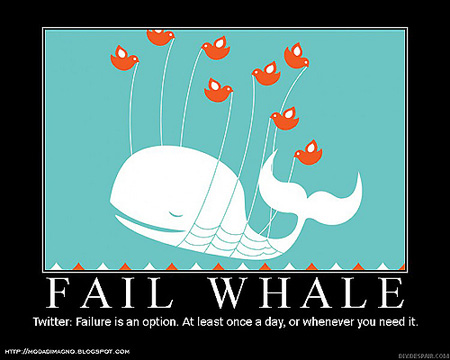At Common Sense, Walter Kirn recounts his own recognition of how Twitter has changed since he first opened an account in 2009 (incidentally, the same year I did … but unlike Walter, I still have about the same number of followers there as I did in my first year):
The platform belonged to celebrities back then, who hawked their movies, albums, and TV shows in words that were their own, supposedly, fostering in fans a dubious intimacy with figures they knew only from interviews. One of these stars, an investor in the platform, was Ashton Kutcher, the prankish, grinning actor who became omnipresent for a spell and then, stupendously enriched, largely vanished from public consciousness. It seemed that Twitter had sped-up fame such that it bloomed and died in record time.
The power of the new platform struck me first in 2012. Two incidents. The first one, a small one, occurred in Indianapolis, where I’d gone to watch the Super Bowl. I attended a party the night before the game at which many Hollywood folk were present, including an actor on a cable TV show who played a roguish businessman. The actor was extremely drunk, lurching about and hitting on young women, and it happened that my wife, back home, whom I’d texted about the scene, was able to read real-time tweets about his antics from other partygoers. A few hours afterward she noticed that these tweets had disappeared. Instant reality-editing. Impressive.
I concluded that Twitter was in the business not only of promoting reputations, but of protecting them. It offered special deals for special people. Until then, I’d thought of it as a neutral broker.
[…]
My own habits on Twitter changed around that time. Observational humor had been my mainstay mode, but I realized that Twitter had become an engine of serious opinions on current affairs. On election night in 2016, while working at another journal, Harper’s, I was given control of the magazine’s Twitter feed and asked to think out loud about events while following them on cable news. I saw early that Trump was on his way to victory — or at least he was doing much better than predicted — and I offered a series of tart remarks about the crestfallen manners of various pundits who couldn’t hide their mounting disappointment.
The official election results were still unknown — Clinton retained a chance to win, in theory — but before the tale was told, my editors yanked my credentials for the account and gave them to someone else. The new person swerved from the storyline I’d set (which reflected reality) and adopted a mocking tone about Trump’s chances, even posting a picture of a campaign hat sitting glumly on a folding chair at his headquarters in New York City.
It struck me at first as pure denial. Later I decided that it was far more intentional — that my left-leaning magazine wished to preserve the illusion for its readers that the election’s outcome was unforeseeable, possibly to maintain suspense or so it could later act startled and disturbed in concert with its TV peers. Its Twitter feed, as a record of its reactions, had to align with this narrative.
I grew convinced that night that Twitter meant trouble for me. It had become an opinion-sculpting instrument, an oracle of the establishment, and I knew I would end up out of step with it, if only because I’m of a temperament which habitually goes against the flow to challenge and test the flow, to keep it honest. Mass agreement, in my experience, both as a person and a journalist, is typically achieved at a cost to reality and truth.




